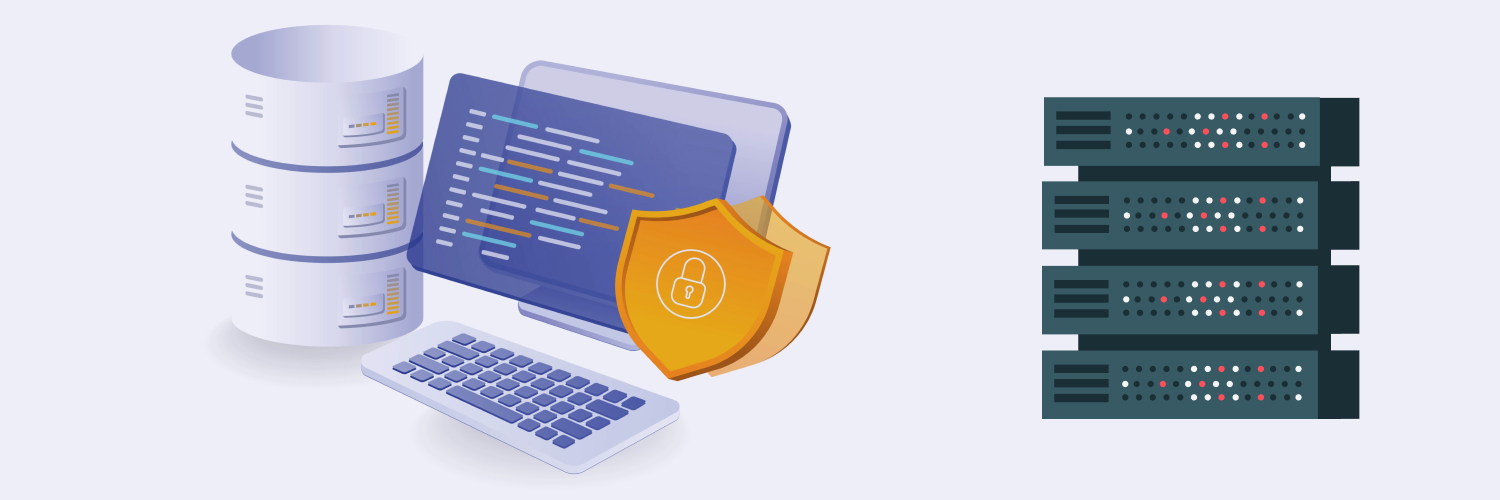Playwright Vs. Puppeteer (What’s The #1 Framework?)
Two of the biggest names in tech have significantly advanced their end-to-end (E2E) testing tools in recent years and are going head-to-head: Microsoft’s Playwright vs. Puppeteer by Google. They both excel in browser automation, offering extensive capabilities. They allow developers to extract data, take screenshots, and navigate through websites programmatically — among multiple other possibilities. While the latter’s main focus is simplicity and integration with the Chrome browser, the former stands out with its cross-browser support.
The growing reliance on frameworks like Puppeteer and Playwright stems from the heightened recognition of web scraping as a crucial practice for business success. Organizations and individuals are increasingly leveraging these tools to streamline their methods for gaining valuable insights, tracking competitors, and acquiring data for strategic decision-making. However, choosing between the two options depends on your specific project needs and requirements.
Keep in mind that both tools have particular strengths, weaknesses, and use cases. Understanding these nuances is essential for making the most beneficial decision. Let’s delve into the key differences and similarities between Puppeteer vs. Playwright. We’ll explore their distinctive features, discuss their performance considerations, and examine real-world scenarios where each framework may come in handy.
Playwright vs. Puppeteer at a Glance

Although the two frameworks have differences, Playwright and Puppeteer share more than initially meets the eye. Both are Node.js libraries used to control headless browsers, both are great in web testing and automation, and both have similar API methods and web scraping capabilities. So, Playwright vs. Puppeteer is the question. Here’s some basic information you should know to get familiar with these tools.
What is Playwright?
Developed by Microsoft, Playwright is a comprehensive automation tool that provides a unified API for controlling headless and nonheadless browsers since 2020. It supports Chrome, Firefox, and WebKit, making it a versatile choice for many web testing and automation tasks. As of 2023, Playwright has roughly 44.1k active users and over 2.6 million downloads each week.
Top Playwright pros:
- Easy to configure and use
- Solid auto-wait feature
- Several useful integrations
- Growing user base
Top Playwright cons:
- Limited community ecosystem
- Lacks native mobile app support
- Steeper learning curve
What is Puppeteer?
Initially designed for Chrome by Google in 2017, Puppeteer also provides a user-friendly API for tasks like taking screenshots, generating PDFs, and automating interactions with web pages. While not as inherently multi-browser as Playwright, Puppeteer remains a popular choice for developers, especially those familiar with Node.js.
Although the number of active users of this tool is not publicly available, it has over 3.5 million weekly downloads. Now we know who wins the popularity contest in the Playwright vs. Puppeteer battle.
Top Puppeteer pros:
- Easy to set up and use
- Wider community support
- Numerous integrations
- Faster executions
Top Puppeteer cons:
- Limited browser adaptability
- Only uses JavaScript
Who uses Playwright and Puppeteer and why?
These automation libraries have a diverse user base, including but not limited to developers, testers, and quality assurance professionals. However, their use cases don’t end there. More and more businesses across industries find themselves choosing between Playwright vs. Puppeteer every day. Some popular use case scenarios where these frameworks take center stage are:
- E-commerce: These tools are utilized to ensure seamless user experiences across different browsers.
- Tech: Companies leverage Playwright and Puppeteer to validate the functionality of web applications.
- Finance: Institutions employ these tools for secure and accurate data gathering for risk management.
- Gaming: Developers benefit from these libraries in performance testing for web-based applications.
- Quality assurance: Testing teams often integrate Playwright and Puppeteer into their testing suites.
Other popular automation frameworks
In addition to Playwright and Puppeteer, Selenium and Cypress are prominent players in the realm of browser automation. Carefully comparing Cypress vs. Selenium vs. Playwright vs. Puppeteer is a sensible task when deciding which framework is more suitable for your project.
Playwright vs. Puppeteer vs. Selenium
Selenium was one of the pioneering tools for web automation and remains widely used. However, Playwright and Puppeteer have introduced innovations that address some Selenium limitations. In fact, Playwright actually emerged as a response to Selenium’s shortcomings.
Cypress vs. Playwright vs. Puppeteer
Matching up Cypress vs. Puppeteer vs. Playwright can get tricky, especially considering how Cypress differs from the other two. Cypress is primarily meant for E2E testing within a natural browser environment. This tool is known for its simplicity, fast test execution, and real-time reloading, making it a preferred choice for developers focused on testing the user interface and interactions of their web applications.
Comparing Playwright vs. Puppeteer: Key Strengths and Shortcomings

To effectively decide between Playwright vs. Puppeteer, you must become familiar with their many features and capabilities. Only then will you be able to tell which is the best and most convenient option for your business needs. Let’s look at Playwright vs. Puppeteer side by side.
1. Browser support
Playwright offers a more ample browser network than its older counterpart. This characteristic enables a more comprehensive approach to web scraping and other tasks across diverse browser environments. As previously mentioned, Microsoft’s browser automation tool is compatible with Chromium, Firefox, and WebKit. However, it also works with Google Chrome, Microsoft Edge, and Safari.
On this front, Puppeteer is more limited because its initial purpose was to work exclusively with Chrome and Chromium-based browsers. Fortunately, Puppeteer has expanded its scope by introducing Puppeteer for Firefox since the launch of version 2.1.0, much to the delight of its users. This model might not have the same feature set or performance optimizations as the original Chrome version, but it may improve over time.
2. API consistency
Playwright stands out for its commitment to providing a consistent API across various browsers, simplifying the process of creating cross-browser projects. This uniformity ensures you can write automation scripts with a unified set of commands, regardless of your browser of choice.
Playwright’s versatility extends to its language support, accommodating multiple programming languages such as JavaScript, TypeScript, Python, and C#. It’s much more accessible to a diverse range of users and facilitates seamless integration into different project environments.
In contrast, Puppeteer exhibits some differences in API when working with different browsers, even when it’s great for automation. Additionally, although there are community-supported bindings for other languages, Puppeteer’s main focus is still on Node.js. Those who prefer other languages or are not familiar with JavaScript may stick to the competition in this Playwright vs. Puppeteer comparison.
3. Performance
Playwright demonstrates faster speed than Puppeteer in specific scenarios, primarily due to its optimized automation protocol. While Puppeteer generally performs well and is widely acclaimed for its speed, there are instances where Playwright straight-up outshines it, especially in situations demanding swift browser automation.
In terms of headless and headful modes, both Playwright and Puppeteer offer flexibility. The two support both modes, allowing you to run tests in the background or observe them in a visible browser. This feature caters to diverse use cases, accommodating those where discreet background execution or interactive, observable testing is necessary.
4. Maintenance and updates
Playwright maintains a solid reputation for being actively updated. This means it has frequent releases that introduce new features and improvements. Its commitment to continuous enhancement guarantees that this framework remains at the forefront of browser automation technology.
Puppeteer is also still actively maintained. However, Google’s browser automation framework has struggled to keep up with Playwright’s promise of more advanced functionalities. As a result, the framework has witnessed the migration of users seeking cutting-edge functionalities.
5. Community
As a Puppeteer user, you can benefit from a supportive environment where fellow developers are eager to assist with any challenges they may encounter. This collaborative atmosphere extends to various resources, including tutorials, forums, and third-party libraries. In addition, it provides a wealth of knowledge and solutions, offering a reliable framework for guidance and assistance.
Although relatively newer in the community, Playwright is quickly gaining traction and forging its own path. This tool’s community is expanding, with more and more developers joining and contributing to its collective knowledge base. As the community grows, so does the availability of support and resources, promising an increasingly robust ecosystem for you to benefit from in no time.
Puppeteer vs. Playwright for Scraping: What You Should Know

Web scraping, an automated process for extracting data from websites, is a core functionality shared by Playwright and Puppeteer. Both tools can seamlessly automate interactions like clicking buttons, filling out forms, and scrolling through pages to extract target data for you. In addition, collecting data with Puppeteer and Playwright can help you bypass some anti-scraping measures to optimize your projects.
Web scraping often triggers bot detection and IP blocking measures due to rapid server requests. Both Playwright and Puppeteer mitigate this by introducing breaks between sequential activities. In addition, when scraping with Playwright, you can use its innovative auto-waiting function. This feature mimics human behavior, offering a more convenient solution than Puppeteer’s manual timer setup.
Finally, Playwright is an excellent choice for projects that involve data scraping from multiple web browsers due to its exceptional cross-browser support. In terms of convenience, we have a clear winner in the Playwright vs. Puppeteer scraping debate.
Let’s Explain: Proxies for Playwright and Puppeteer

Proxy support within your favorite web scraping tools is a crucial feature that enables you to control and manipulate network traffic during browser automation. Proxies allow you to observe, intercept, and modify HTTP requests and responses, facilitating various use cases.
Playwright seamlessly integrates proxy support, allowing you to set up your proxies at the browser, context, or page level. This flexibility empowers you to tailor proxy configurations to specific needs. Integrating a proxy in Playwright involves creating a browser context or a page with specific proxy settings. You can achieve this by providing the proxy server details when launching the browser or creating a new context.
Puppeteer, too, offers proxy support, primarily through the puppeteer.launch method. You can specify proxy server details when launching the browser, allowing Puppeteer to route network requests through the designated proxy. To use a proxy in Puppeteer, you need to include the args property when launching a new browser instance. This property allows for command-line arguments, including those related to proxy configuration. Looks like we have a tie in this Playwright vs.Puppeteer facet.
Best proxies for your testing and automation needs when web scraping
Selecting the best proxies for web scraping and automation depends on your specific testing requirements, the target websites, and the nature of your scraping activities. Here are some considerations and recommendations for choosing proxies for your testing and automation needs:
- Look for proxy services that offer rotating or dynamic IPs that emulate humanlike behavior and reduce the risk of detection.
- Choose proxies located in regions relevant to your target website.
- Opt for proxies with high-speed connections to ensure maximum efficiency.
- Select proxy providers with a reputation for reliability and high uptime.
- Consider the best type of proxy protocol based on your requirements.
Puppeteer vs. Playwright: Who Wins the Battle?

Picking the best option in our Playwright vs. Puppeteer face-off is a tough call. Overall, both options are solid automation libraries. Still, Playwright’s multi-browser capabilities, cross-language support, and additional useful features make it a more potent solution for web scraping. But remember, there’s no right or wrong answer when sizing up Playwright vs. Puppeteer, so pick the option that best suits your project’s requirements and specifications.
And don’t forget to use a reliable proxy. More than just a proxy provider, Rayobyte is dedicated to ensuring your scraping project’s success. Our proprietary monitoring, immediate proxy rotation, and IP infrastructure ownership ensure unparalleled control, reliability, and 99% uptime. Try our data center proxies for maximum diversity. If you’re gathering copious amounts of data, test out our residential IPs, optimized with Proxy Pilot.
The information contained within this article, including information posted by official staff, guest-submitted material, message board postings, or other third-party material is presented solely for the purposes of education and furtherance of the knowledge of the reader. All trademarks used in this publication are hereby acknowledged as the property of their respective owners.






